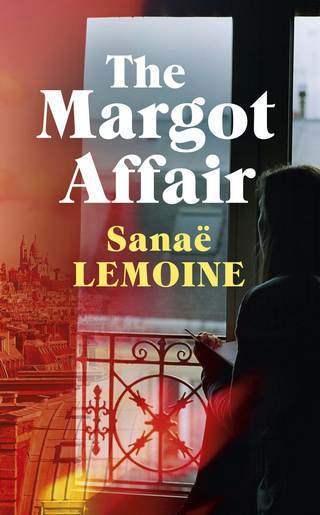Winter Reading
Morgan: The Margot Affair by Sanae Lemoine—This French debut is a beguiling novel of love, secrets and betrayal. Margot is the 17 year old daughter of a well-known actress and a married politician. Her father has visited them regularly over the years but lives a double life. In an impetuous moment, Margot reveals this to a journalist and the ramifications are not quite what she expected. Beautifully written—and very Parisian. Also Daisy Johnson’s Sisters (due in August) is a searing portrayal of sibling love and envy, of the power one can have over another. Brilliantly written, this book will linger in the reader’s mind long after its completion.
Steve: On 29 April 1986, the Los Angeles Public Library went up in flames. Arson or accident? Susan Orleans’s engaging The Library Book is part true crime investigation, part history of the Library, part memoir of her lifelong love of books and libraries, and a grace letter to their cultural importance—even in this internet age. Some 400,000 books were destroyed, over 700,000 were damaged—among the casualties of the inferno were over 12,000 cookbooks —‘Their covers burst like popcorn’, the entire Shakespeare collection; five million American patent drawings and listings; 90,000 books on engineering; leaves from a 1635 Coverdale Bible—the first complete translation in modern English. Orleans also re-examines the case of the suspected arsonist, 27-year-old Harry Peak, who died in 1993. He at first admitted the crime and then vehemently denied it.
In an engaging interview with Peak’s sister, Debra, Harry—a part-time actor and drifter—comes across as a fondly remembered fantasist and attention seeker. Orleans leaves it open—the faulty and often antiquated electrical wiring of an institution that was six decades old, seems a more plausible culprit. The long history of torching libraries through the ages also intrigues Orleans, as does the replacement and restoration of the L.A. Library’s salvageable books: thousands of books were frozen in an effort to preserve them. She also looks into the intermittent—but ultimately successful—efforts to restore and expand the library as it is today.
Scott V: Grant by Ron Chernow—Most biographies of Ulysses S. Grant concentrate almost exclusively on his Civil War exploits: his rise to Union Commander and his starring role in the ultimate victory over the Confederacy. Understandable: it’s the story of a man, considered to be a failure in every venture, who rises to become the saviour of the Union (in tandem with Lincoln), all the while fighting another epic battle—with alcoholism. But it’s Grant’s post Civil War life as a two term President during the period of Reconstruction that’s a revelation here. In many instances, he comes across as a naive leader who means well but who gets unwittingly embroiled in scandal after scandal—showing stubborn loyalty to those close to him, who turn out to be corrupt. The greatest tragedy, however, is that early and comprehensive gains in Civil Rights for former slaves (overseen by his administration and a Union military presence in the South,) are thwarted and rolled back by a bloody wave of domestic terrorism in the form of the KKK and other similar groups. The North, eager for reconciliation with the South, becomes weary of constant intervention, and so, it will be almost another hundred years before any further gains are made in Civil Rights for African Americans. Very interesting read.
Andrew: The Abstainer by Ian McGuire—What to read in a world post-Cromwell? I came blinking into the light in May after finishing the Hilary Mantel, and have struggled to gain traction with other novels since then. I’m very keen to read Hamnet by Maggie O’Farrell. It is an imagined life of Shakespeare’s son and getting high praise all over the place, but I think I will do her better justice if I leave the sixteenth century alone for a bit. So, instead I’m knee deep in 1860s Manchester with a rollicking noir thriller of Fenian agitators and undercover police. Ian McGuire’s earlier Victorian icebound whaler thriller The North Water was one of my favourite reads of a few years ago. It was a gobsmacking adventure, with its mise en scène so far out of my ken that it made for a transportive experience. The Abstainer lacks this extraordinary thrill-of-the-new element but Maguire has impeccable historical knowledge and enough of a knack for character and pacing, that I’m pleased enough to come along for the ride.
Jack: Collected Essays by James Baldwin—From an essay, The American Dream & American Negro, published in 1965: ‘It comes as a great shock to discover that the country which is your birthplace and to which you owe your life and identity has not, in its whole system of reality, evolved a place for you.’ Fifty-five or four-hundred years later, is a change gonna come?




